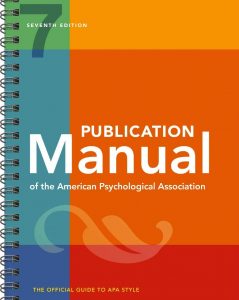The American Psychological Association, (APA) has disallowed any further use of the phrase ‘the poor’ as an identity marker. That is one out of many similar decisions it has codified in the 7th Edition of its referencing system which is in the process of formally coming into effect soon. In place of ‘the poor’, it has an alternative in ‘people living in poverty’.
 It is all part of its sensitivity to inclusive and bias-free language use even as the new phrase is no less problematic. The difference it makes, however, is the sensitivity it shows to the difficulty of capturing the condition of poverty and classifying those experiencing it. Poverty, like all such difficult concepts – security, power, evidence, etc – are always questions of power relations, of who is speaking and from which standpoint. While government officials speak of poverty in millions of Dollars, the real people for whom they are speaking would most likely speak differently if ever consulted. It is not surprising that poverty is increasing instead of being anywhere near eliminated. Academic referencing from which APA wants a label such as ‘the poor’ dropped is something that only academics bother about but this decision against the use of ‘poor people’ to refer to any collectivity has significance for Intervention.
It is all part of its sensitivity to inclusive and bias-free language use even as the new phrase is no less problematic. The difference it makes, however, is the sensitivity it shows to the difficulty of capturing the condition of poverty and classifying those experiencing it. Poverty, like all such difficult concepts – security, power, evidence, etc – are always questions of power relations, of who is speaking and from which standpoint. While government officials speak of poverty in millions of Dollars, the real people for whom they are speaking would most likely speak differently if ever consulted. It is not surprising that poverty is increasing instead of being anywhere near eliminated. Academic referencing from which APA wants a label such as ‘the poor’ dropped is something that only academics bother about but this decision against the use of ‘poor people’ to refer to any collectivity has significance for Intervention.
In mid 2019, Intervention conducted a mini-scale Vox Populi around Abuja Federal Capital on how the masses understand themselves vis-à-vis fighting corruption. A dominant view in the testimonies showed that people do not like being referred to as poor. Instead, they make a distinction between material lack and being poor. For most of the participants in that conversation, to be called poor is a curse. Only very few and they were mostly graduate job seekers did not raise that objection to being called poor.
But when a synthesis of the conversation was published, critics attacked it. A Mass Communication scholar described it as the outcome of ‘Pentecostal hue’. There were other critics, including those who sent reading materials on how interpretive research may be synthesised. It was all very revealing as well as interesting.
Well, now APA has come up with a position that tallies with what Intervention’s Vox Populi found out much, much earlier than APA. It is hoped that critics would update themselves.
Why does this matter? Why is it an issue even as minor as it looks?
It matters because language in use can be productive of the reality that is invoked. People tend to enact what they are called, sometimes unconsciously. As such, tagging people one way or the other can make them reproduce the tag. Similarly, referring to any set of persons as poor can reproduce poverty.
So, as limited as APA’s intervention is, it is progress in admission of the performative implications of tagging!




























